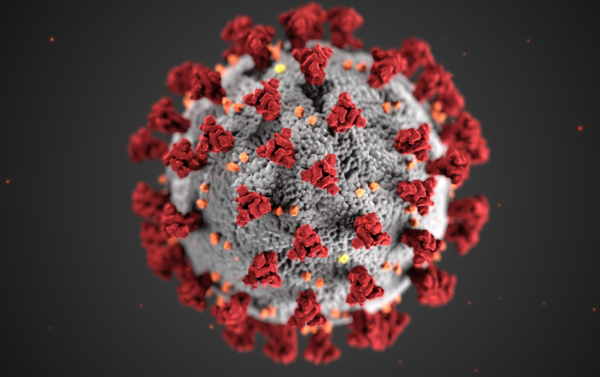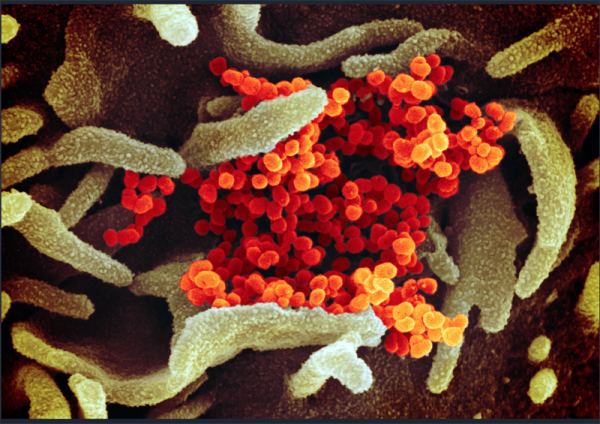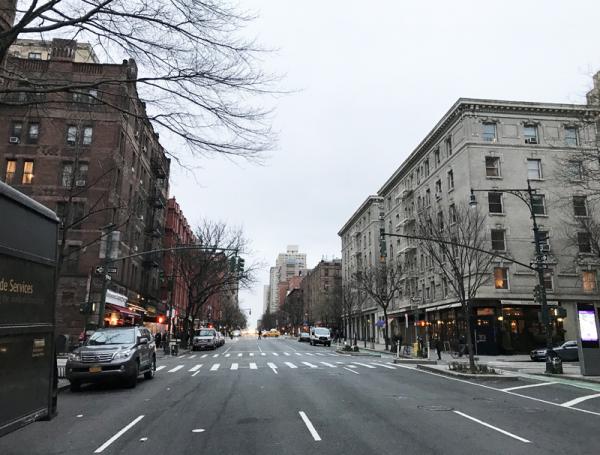KID REPORTERS’ NOTEBOOK
The Novel Coronavirus: My Quarantine Diary


Josh, who was recently quarantined with his family, researches his article at their New Jersey home.
Around the world, schools and universities are closing indefinitely. Restaurants and shops are boarded-up. And sporting events, airline flights, and cruises are being canceled. Why?
Every day, new cases of COVID-19 are being reported across the United States and around the world. This respiratory illness is caused by a novel (new) coronavirus. The highly-contagious disease was first identified in December of 2019 in Wuhan, the capital of China’s Hubei province.
According to the World Health Organization, there are more than 132,000 confirmed cases of COVID-19 in 123 countries, with more than 4,600 deaths. Some countries, including China, Iran, and Italy, have been hit especially hard.
The elderly and people with underlying medical conditions are most at risk from the disease. Many have become seriously ill and died.
Children are at an extremely low risk of even getting sick. But because they may carry germs from the virus, precautions are being taken to keep the overall population safe.
A SHORTAGE OF TESTS
In the U.S., there is currently a shortage of tests. Therefore, the number of people across the country who may have the virus is unknown. To date, more than 2,000 cases have been identified. That number is expected to rise sharply in the weeks ahead, as more tests become available.
“It doesn’t matter if you’re in a state that has no cases or one case,” said Anthony Fauci, director of the National Institute of Allergy and Infectious Diseases. “You have to start taking seriously what you can do now for if and when the infections will come—and they will come.”
As of March 13, the Centers for Disease Control (CDC) had run a total of 3,903 tests. Public health labs in 48 states, New York City, and seven California counties had conducted an additional 9,721.
Until we know more about the disease and how widespread it is, Fauci and other doctors are advising people to practice “social distancing.” Such measures include avoiding large gatherings and communal spaces, and closing workplaces and schools.
Those who know that they have been exposed to someone with the virus should stay home. Individuals who develop symptoms of COVID-19, which include a cough and fever, are advised to call their doctor or local health department.

This illustration shows the structure of the novel coronavirus. (Image courtesy of the CDC)
IN QUARANTINE
On February 23, I attended a family celebration in Westchester, a suburban area outside of New York City. On March 3, my family and I received a message that someone at the party had been diagnosed with COVID-19.
The New York State Department of Health mandated that everyone who attended the party go into a 5-day quarantine (a total of 14 days since the possible exposure). This included my parents, my sister, and me. We needed to ensure that we did not have the virus and that we did not spread it to others.
We stocked up on food and prepared to stay indoors. It was painful not to be in school with my friends, but I accepted the situation. Quarantine is the best measure to ensure public safety.
Yes, I was bored for long periods of time. Yes, I was rather sick of my family after the whole ordeal. And yes, I watched a different movie on Netflix every day. But taking part in quarantine helped keep our community safe.
ONLINE CLASSES
On March 9, I went back to school. As the virus spread, many schools in my area—I live in New Jersey—started to close. I have several friends who are taking part in virtual classes. The teacher conducts class through a website called Zoom, and students participate from home.
I wondered if my school would be next. Would we have measures like this? Would I need to go into quarantine again?
Sure enough, on March 12, my school closed. It is working hard to train teachers to conduct classes online. I will be home for an indefinite amount of time. At least this time, my friends from school are at home, too, and I can call them.

This electron microscope image shows the virus (orange) that causes COVID-19 after cells (green) were taken from an infected patient and cultured in a lab. (Photo: National Institute of Allergy and Infectious Diseases-Rocky Mountain Laboratories, NIH)
“FLATTENING THE CURVE”
My father, Larry Stiefel, is a pediatrician. I asked him why social distancing and quarantine policies have been put in place.
“This is all part of a measure from public health officials called ‘flattening the curve,’” he said. “Given that the disease has progressed this far, this makes it easier to slow down the spread of it, so that our healthcare systems can deal with those infected safely, and we do not overwhelm our doctors and hospitals.” As the outbreak grows, essential medical equipment could be in short supply.
STAYING SAFE
The CDC is coordinating efforts in the U.S. to stop the spread of COVID-19. I asked Anne Schuchat, the CDC’s principal deputy director, more about the virus and what we can do to stay safe. Here is what she told me via email:
What is the novel coronavirus, and how does it spread?
Novel means new, and this coronavirus is a new kind of coronavirus. There are many types of coronaviruses that we already know about, like the common cold. This new coronaviruscan spread like the common cold, through coughing and sneezing.
What is the CDC doing to help stop the spread of COVID-19?
We are working with other government agencies to track the spread of the virus and slow its spread. We are preparing doctors to treat people with the disease, and supporting them to make sure they have the right resources and advice. We are sharing information with the public so that they can take steps to protect themselves and their families.
What can kids can do to stop the virus from spreading?
You can practice healthy habits at home, school, and play to help protect against the spread of COVID-19:
- Cough or sneeze into a tissue or your elbow. If you sneeze or cough into a tissue, throw it in the trash right away.
- Keep your hands out of your mouth, nose, and eyes. This will help keep germs out of your body.
- Wash your hands with soap and water for at least 20 seconds. Follow these five steps—wet, lather (make bubbles), scrub (rub together), rinse, and dry. You can sing the “Happy Birthday” song twice.
- If you don't have soap and water, have an adult help you use hand sanitizer.
- Keep everything clean. Older children can help adults at home and school clean the things we touch the most, like countertops, doorknobs, light switches, and remote controls.
- If you feel sick, stay home.

One of the best ways to prevent the spread of COVID-19 is to scrub your hands often with soap and water for at least 20 seconds and dry them with a clean towel. (Photo courtesy of the CDC)
What criteria are the CDC using to quarantine people?
If you have traveled to a country with many cases of coronavirus or have been very close to someone who has the virus, the CDC usually recommends quarantine. A quarantine can happen in your own home. It is when you separate yourself from other people until you are no longer at risk of getting sick, so you don't accidently pass on the illness to someone else.
How long is the recommended quarantine period for people who may have been exposed to the virus, and why?
For this new coronavirus, we recommend people stay home for 14 days. That's how long we think it can take between being exposed to the virus and showing any symptoms.
Can children and teenagers carry the virus even if they don’t become sick?
There have been only a few cases of children getting this disease, and they have experienced mild symptoms. You might still be contagious even if you only have mild symptoms.
Can family pets spread the virus?
Some animals, especially those at home, carry certain diseasesm but there is little knowledge so far about pets and this new virus. To be safe, you should always wash your hands after being around animals.

A New York City street is nearly deserted at rush hour as many people practice social distancing.
If someone is concerned about having the virus, what should they do?
If you are feeling sick, ask your parents or guardians to call ahead and talk to a doctor about your symptoms. Your doctor will decide if you need to be tested for the disease.
Many people and groups have been stigmatized because of the virus. Why is this happening, and what advice do you have for them?
Stigma can occur when people associate a disease with a population or nationality, even though not everyone in that population or from that region is specifically at risk for the disease. Stigma hurts everyone by creating more fear or anger towards ordinary people instead of the disease that is causing the problem, so we want everyone to be careful about the information they spread.
In addition to the CDC website, what are the best ways for young people to stay informed about the coronavirus?
We post updates daily on our website and social media channels. You can also check your state health department’s website. [Editor's note: The World Health Organization is also providing daily updates on the coronavirus.]
